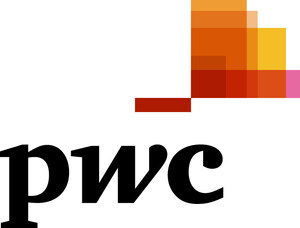NEW YORK, Feb. 10, 2011 /PRNewswire/ -- Merger and acquisition (M&A) activity in the global chemicals industry experienced a boost in 2010 as total deal value rose more than 100 percent compared to 2009, according to a new PwC US report, Chemical compounds: Fourth-quarter 2010 global chemicals industry M&A analysis. Total deal volume in 2010 also increased over the prior year, rising more than 11 percent. And, the full-year activity for deals with a disclosed value greater than $50 million was also up 25 percent.
(Logo: http://photos.prnewswire.com/prnh/20100917/NY66894LOGO )
The increase in M&A activity has been driven by the general improvement in the economy, the increased profitability in the sector, and the trend of focusing on growing core operations via bolt-on and complementary acquisitions. Deal volume was up in the fourth quarter of 2010 as well, with an overall 9 percent rise in announced deals and a 36 percent increase in deals with a disclosed value greater than $50 million, compared to the prior quarter.
"During 2010, we noted two changes in the type of deal activity compared to 2009 – we observed a gradual increase in the size of the deals in our business pipeline, and we saw an increase in the level of private equity activity in the deal processes," said Tracey Stover, global chemicals leader for PwC. "These trends continued throughout the year, resulting in an incrementally higher level of deal volume and a significantly higher level of deal value in 2010 versus 2009."
As with previous quarters in 2010, large deal activity in the chemicals sector continued to show strength in the fourth quarter, both as a function of deal availability and a shift in the risk profile of acquirers. The average value for mega-deals, defined as deals with a disclosed value of at least $1 billion, quintupled compared to 2009. This trend toward larger deals is expected to continue into 2011 based on the current pipeline of activity for deals that have not yet been announced.
Conditions have improved for financial investors throughout 2010. Prior to the economic downturn, financial investors typically accounted for 15-20 percent of total deal activity. While their involvement dropped significantly in 2009, it grew to 17 percent in 2010, and strong financial investor activity is expected to continue in 2011, assuming lending conditions continue to improve.
"In Q4, we saw a change in the pace of the deal process. This may be an indication that companies are able to move more quickly through diligence either with an additional quarter of 'post-downturn' results or due to an increase in the level of competition in the bidding process," added Stover. "Moving into 2011, this faster pace will require that companies enter the bidding process well prepared and prioritize their diligence issues and requests in order to move quickly with limited information."
From a regional perspective, the fourth quarter distribution of deal activity deviated from the typical distribution in several ways. The volume and value of European deals was lower than usual in Q4, although there are several large European deals in the pipeline that have not yet been announced. Additionally, the value of Eastern European deals was higher than normal, with a large Russian deal valued at more than $8 billion. Finally, the value of Asian deals was higher than normal as Q4 2010 had several mega-deals in this region. There were also several announced cross-border deals, with Japan as the acquirer, valued at more than $600 million.
Repositioning for Growth: The tax implications of expanding into a VISTA country
The fourth quarter Chemical Compounds report takes a close look at recent expansion into the VISTA (Vietnam, Indonesia, South Africa, Turkey, and Argentina) countries and the associated tax implications. Today's chemicals companies have already found opportunities for growth through the establishment of operations in the BRIC (Brazil, Russia, India, and China) countries. However, as companies seek to reposition their business strategy to meet new demands, they are now looking for new opportunities in a second wave of emerging markets such as VISTA. When determining how and where to structure a deal, companies should consider the role tax could play in making or breaking the transaction.
In addition to their high gross domestic product (GDP) and rich natural resources, VISTA countries have favorable foreign investment policies. For instance, Indonesia, Vietnam, and Turkey implemented tax breaks for capital investments, subsidies for new businesses, and low-cost financing to attract new foreign business. Free trade zones, where normal trade barriers such as tariffs and quotas are eliminated and bureaucratic requirements are lowered in hopes of attracting investors from around the globe, are also common in the VISTA countries.
As BRIC countries continue to be saturated by multinational corporations, VISTA is an alternate option for consideration. While by comparison, China and Russia give the advantage to local businesses over outsiders, VISTA country governments view foreign investment as an important source of capital for their economies.
For information on Chemical Compounds and to access the full report, including the special section on the tax implications of expanding into a VISTA country, visit: http://www.pwc.com/us/industrialproducts.
About PwC's Global Chemicals Practice
PwC's Chemicals practice is a global network of professionals who provide industry-focused assurance, tax, and advisory services to more than 200 public and private chemical companies.
About the PwC Network
PwC network firms provide industry-focused assurance, tax and advisory services to enhance value for their clients. More than 161,000 people in 154 countries across the PwC network share their thinking, experience and solutions to develop fresh perspectives and practical advice. See www.pwc.com for more information.
© 2011 PwC. All rights reserved. "PwC" and "PwC US" refers to PricewaterhouseCoopers LLP, a Delaware limited liability partnership, which is a member firm of PricewaterhouseCoopers International Limited, each member firm of which is a separate legal entity.
SOURCE PwC
WANT YOUR COMPANY'S NEWS FEATURED ON PRNEWSWIRE.COM?
Newsrooms &
Influencers
Digital Media
Outlets
Journalists
Opted In




Share this article